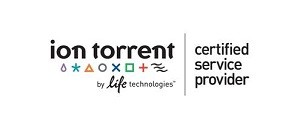The DonoSafe® genomic test analyzes, through massive parallel sequencing, the DNA of more than 200 genes in a gamete donor and the recipient. The test uncovers several thousands of pathogenic mutations in genes involved in more than 300 severe genetic diseases occurring with a combined frequency of at least 1 in 300 births.
A positive test result for a gamete donor (egg or sperm donor) in any single gene (or multiple genes) provides valuable information about the reproductive risks, depending on the corresponding carrier status of the recipient, and prevents the birth of an affected child.
As gamete donation, for a number of reasons, is becoming now more frequent, the DonoSafe® genomic test may be applied in a gamete bank, providing extremely useful clinical information by avoiding genetically ‘incompatible’ donations, which may otherwise result in a 25% risk of giving birth to an affected child or the unwilling transmission of other genetic disorders.
Therefore, the ultimate purpose of this genomic test is to determine whether the gamete donor and possibly the recipient (depending on disease inheritance) are unsuspecting carriers of any one of these 340 genetic disorders, through the detection of pathogenic gene mutations. The current list of genes and the associated disorders may be expanded in the future.
DONOSAFE_DISEASE GENE LIST.pdf
This type of carrier testing for single-gene disorders is not something new. For example, carrier testing for cystic fibrosis (incidence ~1 in 2,500 births) has been a common practice in most countries-populations, while carrier testing for Tay-Sach’s disease, Canavan disease, Nieman Pick Disease Type A, Bloom syndrome and Gaucher’s disease is also common among individuals of Ashkenazi Jewish descent.
Typically, carriers for any of the 340 severe diseases included in the Donosafe® pan-ethnic genomic panel are asymptomatic and usually present without any prior family history of the disorder.
Therefore, they cannot be identified by any other way and this is the main reason why children affected by these genetic diseases are born and diagnosed after birth.
Prior knowledge of a gamete donor’s carrier status, by identification of the corresponding pathogenic gene mutations for any of these disorders through the Donosafe® test, permits, among others, proper genetic ‘matching’ of the prospective recipient by avoiding combinations where both donor and recipient are unsuspecting carriers of the same recessive genetic disorder, which may otherwise have resulted in the birth of a severely affected child (1 in 4 risk).

